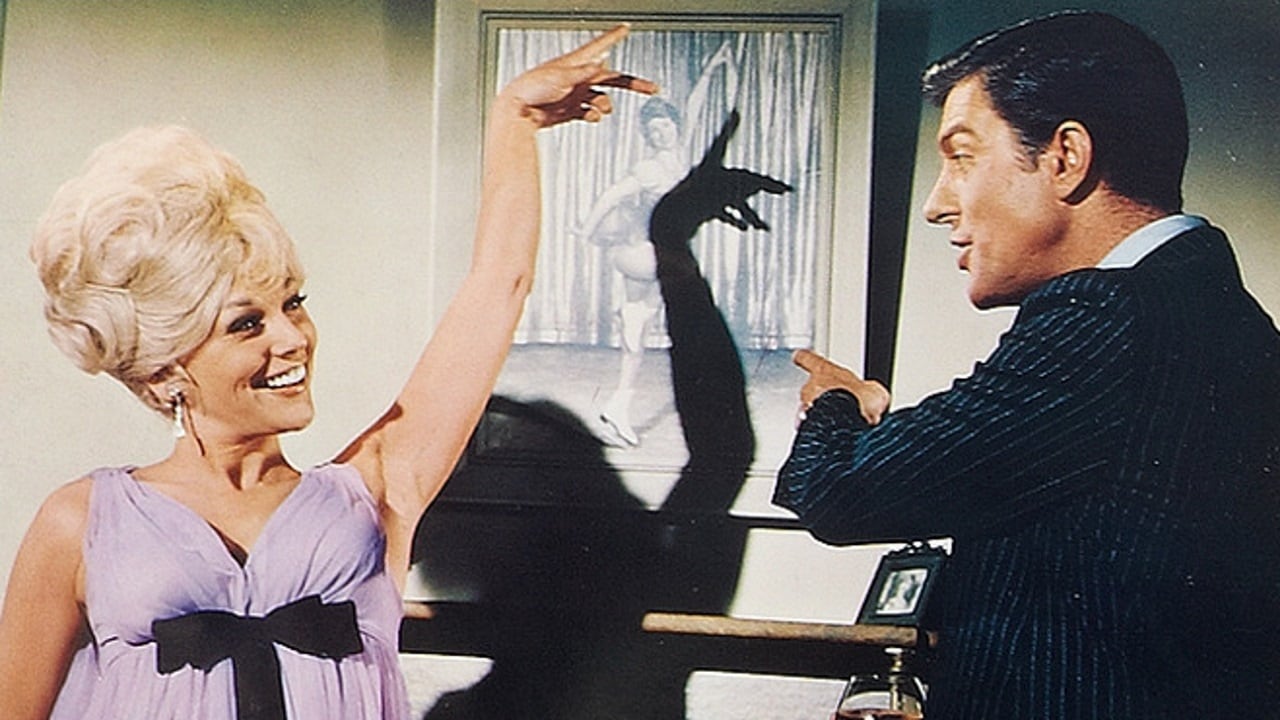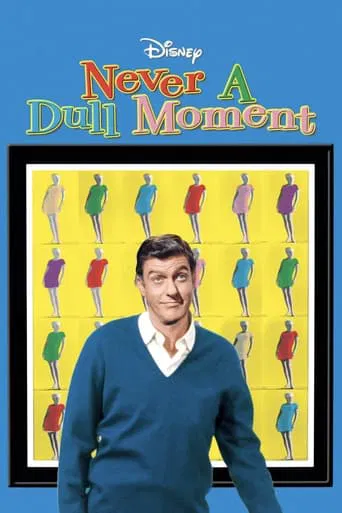ada
the leading man is my tpye
TrueJoshNight
Truly Dreadful Film
Stevecorp
Don't listen to the negative reviews
Rio Hayward
All of these films share one commonality, that being a kind of emotional center that humanizes a cast of monsters.
moonspinner55
Dick Van Dyke acquits himself nicely in colorful role as card-carrying member of the Screen Actors Guild who is mistaken for a gangster and is roped into an art-heist led by a famous mobster. Comedy from the Disney Studios, adapted from a book by John Godey, has some clever, witty writing in the earliest scenes; however, as with most of Disney's live-action output from this era, the narrative relies far too much on slapstick action to amuse the audience. Edward G. Robinson prods his own movie past with tongue-in-cheek portrayal of Joe Smooth, gangland boss and art lover; Dorothy Provine is perky as an art teacher who believes Van Dyke's outlandish story; and Joanna Moore is very funny as Robinson's show-biz crazy spouse, a former skater once featured in a production of "Scandals On Ice"! The second-half of the picture is comprised mainly of sight-gags and mugging and running around, while Robert Brunner's cartoony score is nearly identical to his music from 1965's "That Darn Cat!" Still, the set-up here is amusing, director Jerry Paris sets a fast pace and the production is good despite over-lit interiors. ** from ****
carnoce
The plot is as follows: Jack Albany --comic actor who ironically usually plays heavies-- walks off the set of stereotypical gangster TV movie still wearing his mobster outfit costume. He meets a young punk, named Florian, who confuses Jack for a hit man the former was expecting but has never seen. Jack calls upon his best acting skills to pretend to be the hit man (known only as Ace Williams). He and Florian hightail it back to cultured gangster Joe Smooth's mansion. There, while still pretending to be Ace, Jack learns of a Smooth-plot to steal a painting from the Manhatten Museum of Art the next day. "Ace" has the task of killing one or two Museum guards to make the theft possible. Jack makes the acquaintance of Smooth's comely female art instructor. A romance quickly develops between the two. To sum it all up Jack and the instructor then manage to foil the heist, get Smooth and all his henchmen arrested and the new couple live happily ever after (with Jack BTW getting favorable heist-foiling publicity which will undoubtedly help his acting career).Now to the misunderstanding part I wrote of in the title. This film is slightly dull--but on purpose. Ironic to its title. It is supposed to be about the difference between stereotypical-film gangster situations and real life gangsters. When the film opened up taking place on the set of a gangster movie the film Jack and the other actors are making looks all clichéd with a big, melodramatic shootout at the end of the story. There are no such theatrics when Jack is foiling the "real" gangster heist at the Museum --just a lot of talk and clumsy chasing and stumbling (perhaps more like it would really happen). The "real" gangsters are superbly drawn out (even to the point of some of them (like "Cowboy" Schaefer) possibly being slightly boring but hey they are supposed to be more like real life hoods and they aren't supposed to exist for just two hours to entertain us). In short, the misunderstanding was that no viewers who commented on here before seemed to realize it was all supposed to drag (once Jack leaves the movie set) in the name of realism. The realism is also heightened and contrasted by the very small, enclosed movie set Jack was on early versus the very large, ceiling-included mansion he later finds himself in while pretending to be Ace. Also, when the real Ace Williams actually later shows up he is wearing a then-modern 1960's two-piece business suit--contrasting sharply with the stereotyped gangster way Jack is dressed (see above). (What is wrong with Dick Van Dyke (Jack Albany) being mistaken for Jack Elam (the real Ace Williams)? Nobody in the film was supposed to know in the slightest what the authentic hit man looked like.)
seekhimfrst
This movie, starring the gifted actor, Dick Van Dyke, is an unsullied comedy full of humor and plot. Creative scenes flow in this film with a unique twist on classic situations. Though it is an older film, it surpasses most films hitting theaters today in acting and storyline. Jack displays courage and wit without losing the "just the average guy" way about him. Sincere facial expressions by Dick Van Dyke, and strong comedic timing sell this story from beginning to end. You will finish this movie feeling like you have stepped into "Jack's" shoes and gone on this escapade with him. With a touch of action, romance, suspense, and a delightful twist, this comedy is well worth your time.
BobLib
After several years of phenomenal TV success counterbalanced with a movie career that ranged from good ("Bye Bye Birdie" "Mary Poppins") to so-so ("Fitzwilly") to Gawd-awful ("Lt. Robin Crusoe, U.S.N."), Dick Van Dyke went back to Disney for the third time on four years for "Never a Dull Moment," with results that could best be described as mixed.Now, whenever Hollywood decides to use this all-purpose title, as it had at least four times before, beware, as the film is generally duller that usual. "Never a Dull Moment," lives up to its title, thanks primarily to Van Dyke and a solid supporting cast. Edward G. Robinson, Dorothy Provine (just before her simultaneous retirement and marriage), Henry Silva, Tony Bill, Jack Elam, and Slim Pickens all do as well in their roles as the script permits.And there's the rub. A.J. Crothers, although the Disney people used him several times, was never one of the more inspired writers of comedy, and his films with Disney suffer for it. The cast and director Jerry Paris, a Van Dyke Show veteran on both sides of the camera, give it their best, but a limp script keeps undoing all their efforts.In short, you, and Van Dyke, could worse than "Never a Dull Moment," but you could do a whole lot better, too.

